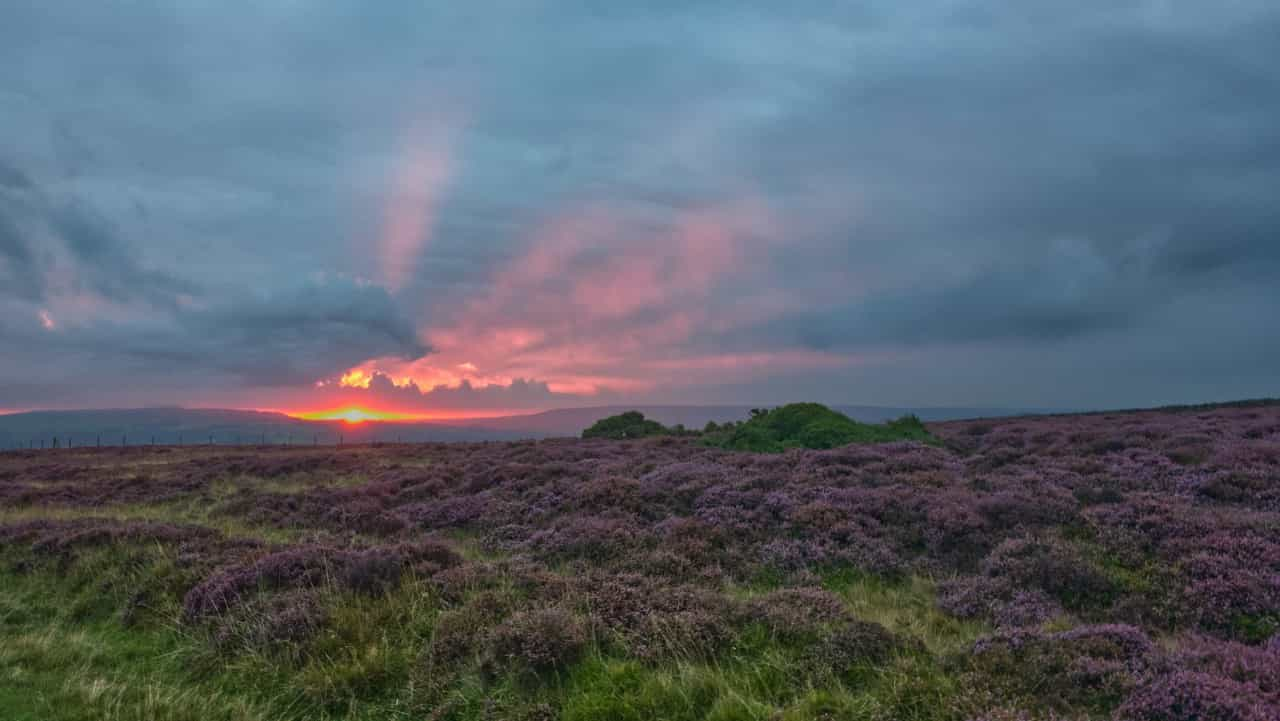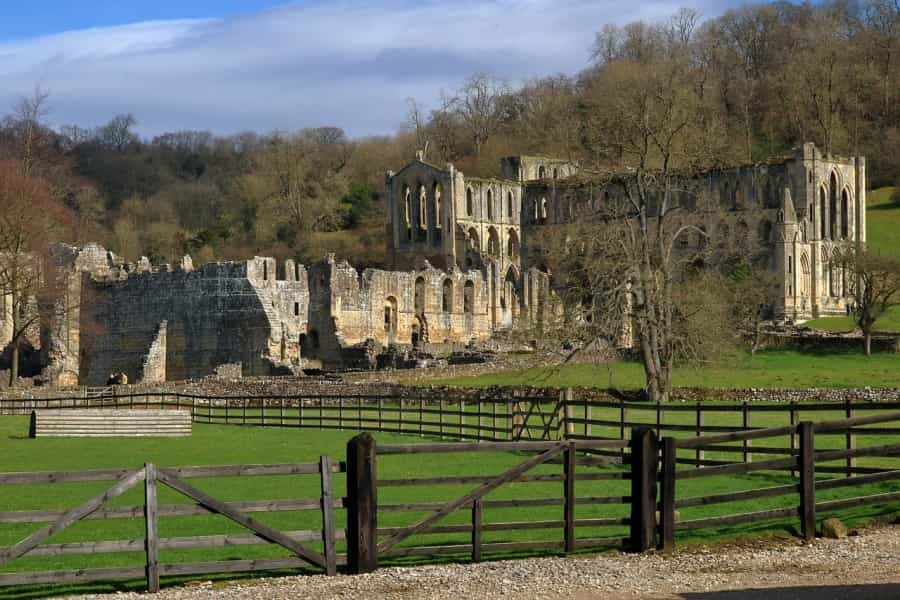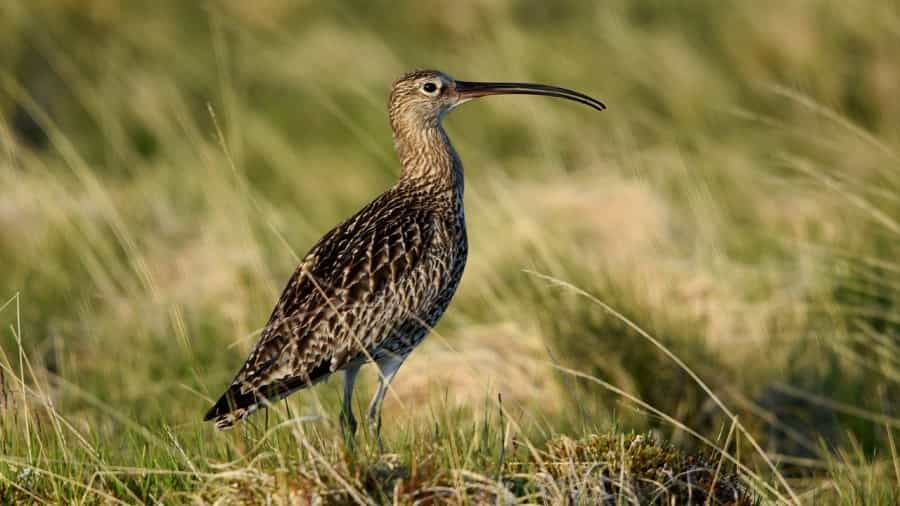North York Moors Area Guide

Stretching over 554 square miles (1,436 square kilometres) of North Yorkshire countryside and with 26 miles (42 km) of North Sea coastline, the North York Moors is one of the UK’s most spectacular national parks. Established in 1952 with the aim of protecting the heather-clad moors, shady woodland and towering sea cliffs, it is one of two national parks in Yorkshire, alongside its big sister the Yorkshire Dales. Its popularity is such that it receives just under nine million visitors every year.
Those incredible visitor numbers reflect the utter gorgeousness of the park… And it’s not all about natural beauty, for in common with the UK’s other 14 national parks, these spectacular landscapes are shaped by man, from the ethereal majesty of 12th-century Rievaulx Abbey to picturesque seaside villages including Robin Hood’s Bay and lively market towns like pretty Helmsley.
Read on for Pitchup’s introduction to the North York Moors – and for more inspiration, delve deep into our expert articles so you can make the most of your time in this stunning corner of North Yorkshire.
Where is the North York Moors National Park?

The North York Moors National Park is tucked into the north-east corner of North Yorkshire, abutting the North Sea. Its near neighbours include the Northumberland and Yorkshire Dales national parks, and the gentle wooded slopes of the Howardian Hills National Landscape are close by as well, so there is no shortage of dramatic scenery in this part of the UK.
The national park is easily accessed from the A1, the major road running between London and Edinburgh, and main roads skirting the perimeter of the North York Moors. The historic city of York (just south of the park) is a rail hub with main lines serving cities across the country.
What to do in The North York Moors?

The North York Moors National Park is a stunning backdrop for time spent outdoors, whether for a gentle family-friendly stroll across heather-coated moors, a stride up Roseberry Topping for views to Captain Cook's Monument, or a forage for jet and fossils on Heritage Coast beaches. Take your binoculars to search out the park's rich wildlife – especially endangered merlins, which now nest among the heather alongside curlews and red grouse – and get them out again after dark to stargaze in clear night skies.
Visit the evocative ruins of great Cistercian abbeys, devour fish and chips overlooking Whitby’s buzzing harbour or grab a pint of Yorkshire bitter in a cosy country pub. No matter where you go, the people of the park extend a genuine Yorkshire welcome, and the park really is open to all, with everything from heritage train rides across the moor to tramper hire and birdwatching available to visitors with accessibility issues.
When does the heather bloom in the North York Moors?
The explosion of colour over swathes of heather moorland from mid August to mid September is the most spectacular natural highlight of the North York Moors year. It’s a time when thousands of visitors are drawn to the park to witness carpets of flowers in palest pink to deepest purple stretching as far as the eye can see, awash with dancing damselflies and butterflies as well as bees going about their vital business of pollination.
Popular places to see the heather
-
Danby Beacon
Dating back to the 1600s, Danby Beacon – standing proud over the village of Danby – was to be lit if the North Sea coast was under threat of invasion by the French fleet. Today it looks its best when surrounded by heather in full bloom. -
Fylingdales Moor
The vast tract of moorland at Fylingdales Moor lies between Ravenscar and Robin Hood’s Bay. It’s a conservation area buzzing with birdlife, so you might get double lucky and see birds of prey soaring above the heather – look out for rare wild orchids too.
-
Hole of Horcum
This cavernous natural amphitheatre at Hole of Horcum is stunning at any time of year, but especially so when covered with a blaze of purple heather in late summer; there’s a circular walk from Saltergate car park so you can soak up the beauty close to. -
Yorkshire Dales National Park
Between its two national parks, Yorkshire has 60 per cent of the UK’s ecologically important upland heath.

Guide To Visiting The North Yorkshire Moors Railway

Stargazing on the North York Moors

Discover the Cultural Highlights of the North York Moors

Best Hikes in the North York Moors

Cycling in the North York Moors

A Guide to North York Moors Wildlife

Climbing in the North York Moors

A family-friendly guide to the North York Moors

Accessible North York Moors

Best Walks in the North York Moors